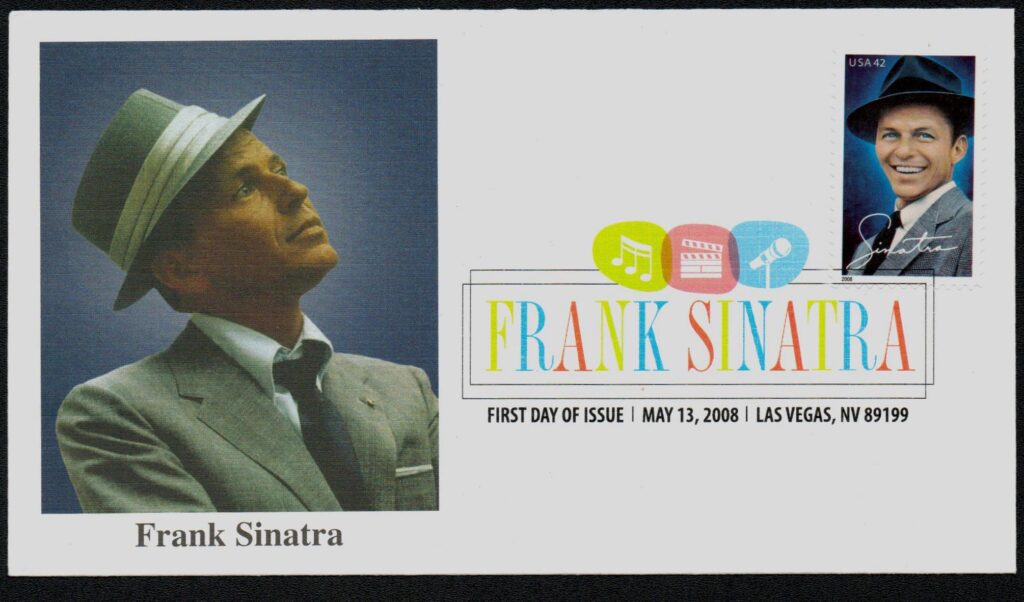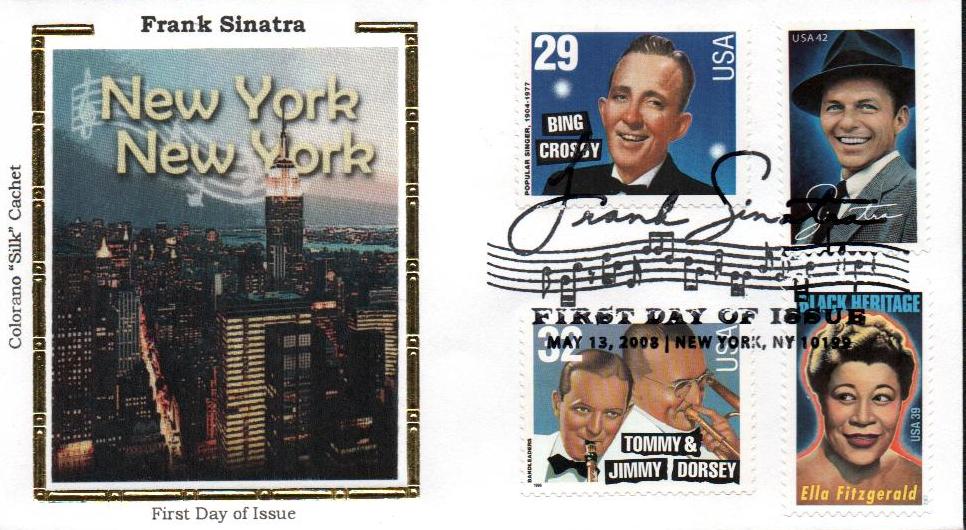Francis Albert Sinatra was born on December 12, 1915, in Hoboken, New Jersey. Nicknamed the “Chairman of the Board” and “Ol’ Blue Eyes,” he’s been called “the greatest singer of the 20th century,” with over 150 million records sold.
Sinatra was the only child of Italian immigrants Anthony and Natalie Sinatra. Though Sinatra never learned to read music, he had taken voice lessons to improve his range and sing without his New Jersey accent. He had his first brush with fame when hired by the newly formed Harry James band in 1939. Less than a year later, the charismatic crooner was recruited by Tommy Dorsey.

Sinatra recorded his first number-one hit song, “I’ll Never Smile Again,” after just six months with Dorsey. His velvety voice made 1940s bobby-soxers swoon and opened the music industry to a younger audience. A 1942 appearance in New York City caused hysteria, later known as “Sinatramania.” The media dubbed him “Swoonatra” and “The Voice,” while calling his fans “Sinatratics.” Soon, Sinatra had contracts with Columbia Records, R.K.O. Films, and the Hit Parade radio program. During World War II, Sinatra was exempt from serving because his left eardrum had been damaged at birth. He traveled with comedian Phil Silvers doing USO tours. Sinatra also performed on the Armed Forces Radio Service with the Andrew Sisters. Sinatra started his own record label, Reprise Records, in 1961.
In addition to his singing career, Sinatra appeared in 58 films, including both musicals and serious dramas. In 1953, he won an Academy Award as best supporting actor for his role in From Here to Eternity. This fame helped revitalize his stage performances after they had lagged for a few years. He appeared in films with some of Hollywood’s greatest stars including Gene Kelly, Burt Lancaster, and Doris Day.
Sinatra was leader of the “Rat Pack,” a group of Hollywood stars who were close friends and often performed together in Las Vegas and in film. The group included Dean Martin, Sammy Davis Jr., Peter Lawford, and Joey Bishop. They also campaigned for future President John Kennedy, an unofficial member of the group. Sinatra even hosted his pre-inauguration gala. In addition, the Rat Pack held charity events.
Sinatra attempted to retire in 1971, but returned to performing two years later. He recorded several albums and resumed his Las Vegas residency, while also performing around the world. After decades of performing, Sinatra recorded his last album in 1993. He continued to give concerts until his health failed. In appreciation of his storied career, he was awarded the Presidential Medal of Freedom, Congressional Gold Medal, Kennedy Center Honor, 11 Grammy Awards, a Grammy Lifetime Achievement Award, and was listed as part of Time magazine’s 100 most influential people of the 20th century. He died in Los Angeles on May 14, 1998. Sinatra is remembered for his influential music style and the happiness he brought to untold millions of people who had the privilege of hearing him perform.
Click here for more about Sinatra from his official website.
| FREE printable This Day in History album pages Download a PDF of today’s article. Get a binder or other supplies to create your This Day in History album. |
Discover what else happened on This Day in History.




